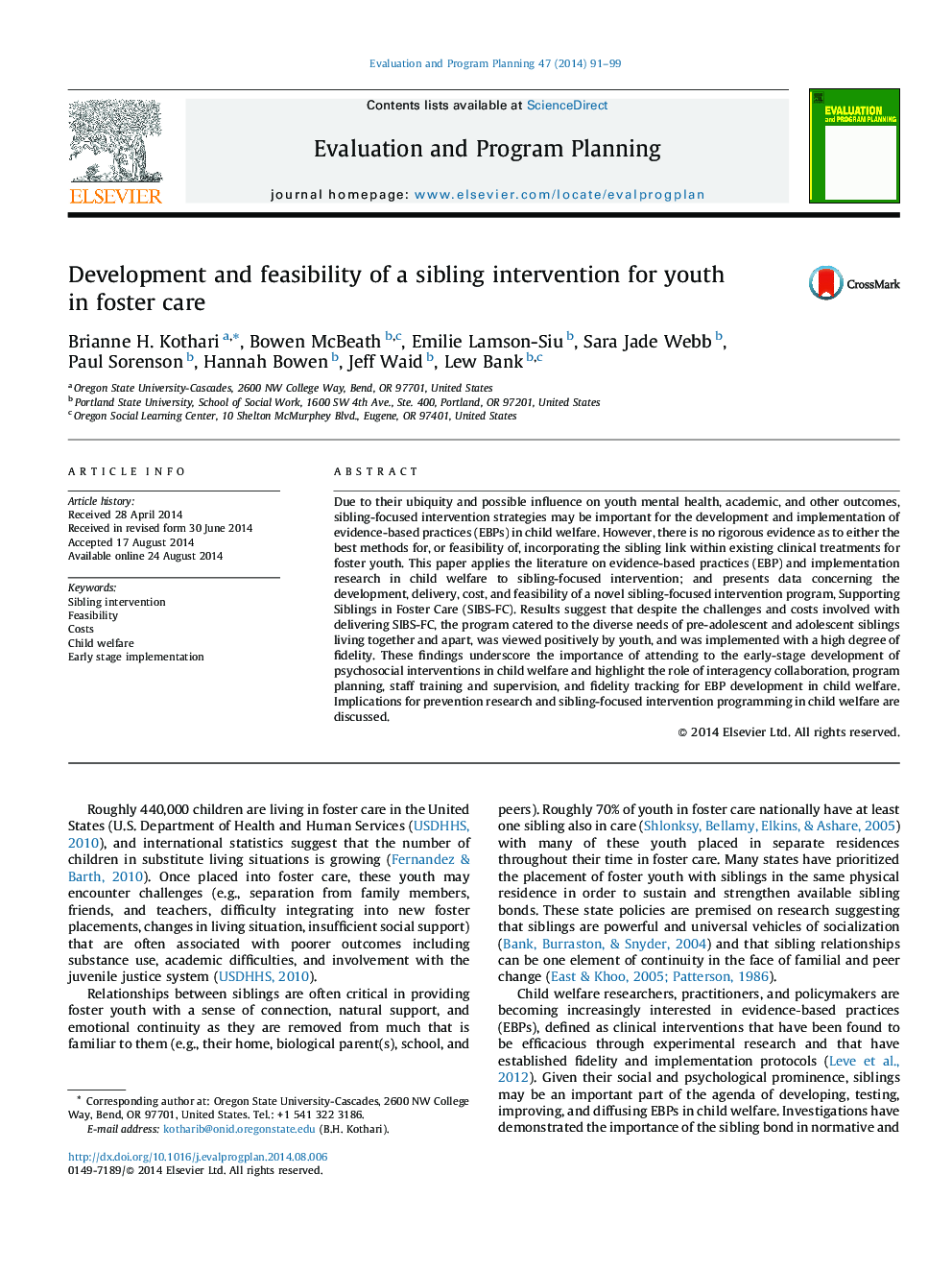| Article ID | Journal | Published Year | Pages | File Type |
|---|---|---|---|---|
| 6793501 | Evaluation and Program Planning | 2014 | 9 Pages |
Abstract
Due to their ubiquity and possible influence on youth mental health, academic, and other outcomes, sibling-focused intervention strategies may be important for the development and implementation of evidence-based practices (EBPs) in child welfare. However, there is no rigorous evidence as to either the best methods for, or feasibility of, incorporating the sibling link within existing clinical treatments for foster youth. This paper applies the literature on evidence-based practices (EBP) and implementation research in child welfare to sibling-focused intervention; and presents data concerning the development, delivery, cost, and feasibility of a novel sibling-focused intervention program, Supporting Siblings in Foster Care (SIBS-FC). Results suggest that despite the challenges and costs involved with delivering SIBS-FC, the program catered to the diverse needs of pre-adolescent and adolescent siblings living together and apart, was viewed positively by youth, and was implemented with a high degree of fidelity. These findings underscore the importance of attending to the early-stage development of psychosocial interventions in child welfare and highlight the role of interagency collaboration, program planning, staff training and supervision, and fidelity tracking for EBP development in child welfare. Implications for prevention research and sibling-focused intervention programming in child welfare are discussed.
Keywords
Related Topics
Health Sciences
Medicine and Dentistry
Public Health and Health Policy
Authors
Brianne H. Kothari, Bowen McBeath, Emilie Lamson-Siu, Sara Jade Webb, Paul Sorenson, Hannah Bowen, Jeff Waid, Lew Bank,
